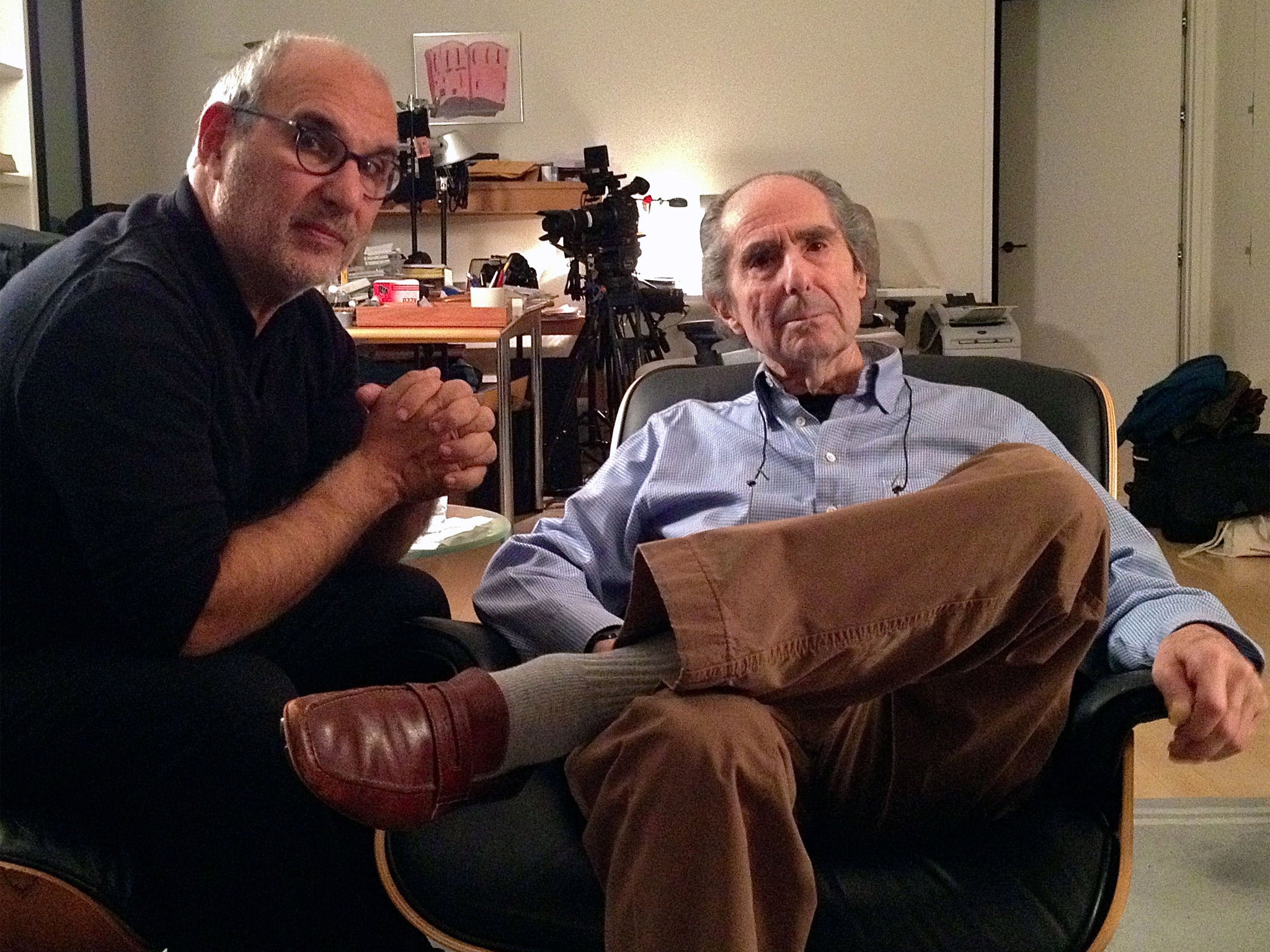Philip Roth Unleashed, TV review: Misogyny unbound as Yentob and Roth enjoy literary love-in

Your support helps us to tell the story
From reproductive rights to climate change to Big Tech, The Independent is on the ground when the story is developing. Whether it's investigating the financials of Elon Musk's pro-Trump PAC or producing our latest documentary, 'The A Word', which shines a light on the American women fighting for reproductive rights, we know how important it is to parse out the facts from the messaging.
At such a critical moment in US history, we need reporters on the ground. Your donation allows us to keep sending journalists to speak to both sides of the story.
The Independent is trusted by Americans across the entire political spectrum. And unlike many other quality news outlets, we choose not to lock Americans out of our reporting and analysis with paywalls. We believe quality journalism should be available to everyone, paid for by those who can afford it.
Your support makes all the difference.If you were Alan Yentob, the presenter/editor of Imagine – Philip Roth Unleashed, who had been trying to persuade “America’s greatest living writer” to appear on your programme for more than 20 years, then perhaps the greatness of your subject would seem self-evident. But if you were one of those “shiksa” women that Roth’s books fetishise, or one of the suburban Jews they sometimes mock, or an ex-friend mercilessly co-opted into his fiction, then you might have appreciated a more rounded portrait.
In the first part of this double bill, which aired last week, Imagine made the case for Roth’s greatness: 80 years on earth, 31 books, 10 major literary prizes and a road named after him in his home town of Newark, New Jersey. This case is unassailable and Roth was an engaged, analytic interviewee. Not all such prolific novelists can remember their books in such detail and certainly not all such eightysomething prolific novelists. But shouldn’t the very fact of Roth’s unassailable greatness have made some criticism of his work permissible?
The matter of his treatment of women was touched on briefly – though not with Roth himself. Two of his female friends, his biographer Claudia Roth Pierpont (no relation) and Irish novelist Edna O’Brien, were drafted in to defend him against the straw man accusation of misogyny. The real objection is less stark, but more damning. As critic Keith Gessen wrote: “Roth is slightly less useful in a world that is slightly more equal than the world he knew; where men and women do not stand on opposite sides of the question of sex, but arranged, together, sometimes helplessly, against it.”
This was apparently also a blind spot for Yentob. In one particularly cringing moment our presenter read aloud a passage in which Roth describes female orgasm before asking: “How do you know all these things about women? About how it works for them?” If any gentle sarcasm was implied here, Roth did not acknowledge it. One man congratulating another on his understanding of a subjective female experience, in the complete absence of any women. This was unconscious sexism at its most ludicrous.
Yet if Yentob had challenged Roth more, it’s likely we would still be waiting for this long-awaited interview. Then we’d have been deprived of an overview which, while by no means comprehensive, does represent the great writer and great egotist’s final thoughts on himself – a not inconsiderable coup. As Roth obligingly said in conclusion: “I can guarantee you that this is my last appearance ever on television...absolutely last appearance on any stage anywhere.”
If you want to understand America, read Roth’s American Pastoral, but if you want to understand Britain, watch Channel 4’s new three-part documentary series The Complainers, which began last night. It introduced us to a “new breed of super complainer”, including Lewis aka “Traffic Droid”, a man who cycles around London booming instructions at other road users. It also suggested a terrifying vision of a future in which five per cent of the population are full-time complainers, having all their emotional needs met by customer service hotlines, and the other 95 per cent work in a call centres, servicing those needs.
After time spent in the company of super-complainers, faceless bureaucracy has never looked so sympathetic. Bus driver Tony, for instance, has all the makings of a folk hero. Following a string of complaints regarding his rudeness to passengers, he’s been referred for further training, but it seems unlikely to stick. “They’re my customers, but they’re not always right and I know that for a fact,” he said, defiantly. “I’m always right.”
Join our commenting forum
Join thought-provoking conversations, follow other Independent readers and see their replies
Comments